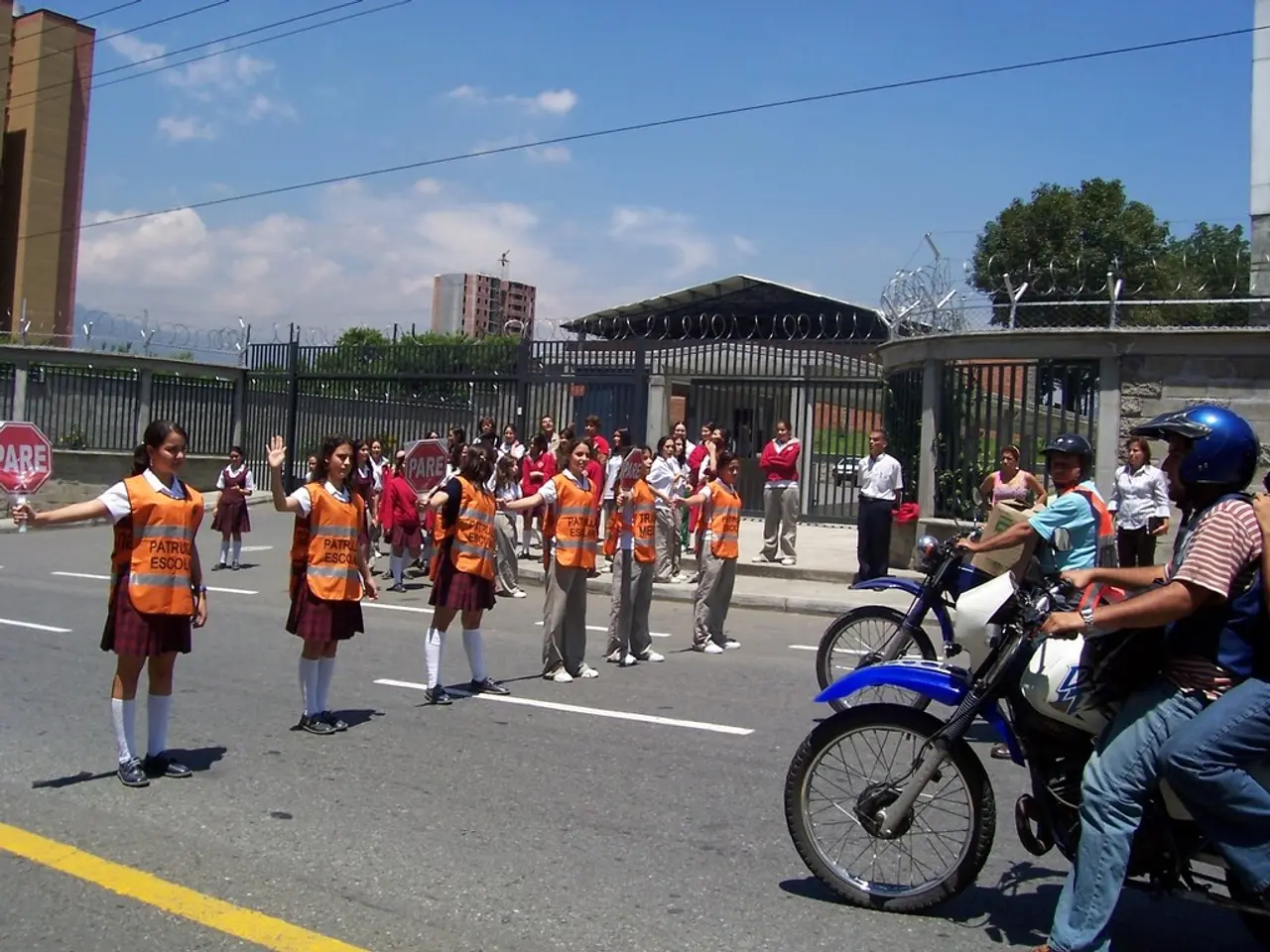Promoting meaningful connections through journeying on foot: fostering walking culture in educational institutions
The I Bike programme, a pioneering initiative in Scotland, is making strides in promoting active travel among school children. The programme, currently operational in seven local authority areas across the country, including Edinburgh, West Lothian, and Aberdeen City, aims to foster a holistic approach that combines skill development, safety education, community involvement, and environmental awareness.
The Components of I Bike Schools
At the heart of the I Bike programme are key components designed to encourage active travel among school children. These include bike skills training (Bikeability) to teach children essential cycling skills, scooter skills sessions to widen the scope of active travel modes, led walks and route planning activities to familiarize pupils with safe travel routes and environments, and a strong emphasis on safety and hazard awareness.
Moreover, the programme places great importance on the engagement and influence of teachers and parents who role model active travel behaviours, reinforcing positive habits. Upskilling of both pupils and school staff in bike maintenance is another crucial aspect, supporting the sustainability of the bike fleet and empowering the school community.
The Benefits of I Bike
The benefits of the I Bike programme are manifold. It encourages healthy, climate-friendly travel habits among children, promotes active lifestyles through practical skills and confidence-building, creates a supportive environment where teachers and parents model active travel, enhances road safety awareness by educating children about real hazards, and provides schools with ongoing capacity to maintain bikes, making active travel more sustainable and accessible.
Addressing Challenges and Bridging Gaps
Research through the #AndSheCycles project has shown that the drop-off in cycling among teenage girls is predominantly cultural. To address this issue, the I Bike programme is now focusing on creating dedicated programmes for building girls' self-confidence, aiming to bridge the gap in cycling participation.
Moreover, the programme recognizes that safety is a major barrier to active travel, particularly when it comes to cycling. To address this, I Bike prioritizes connecting with new local infrastructure to show traffic-free routes and encourage path networks. If children live in a flat, there's often nowhere to store bikes, making scooters a more viable option. Scooters, being more accessible due to being cheaper, lighter, and easier to carry and store, are an alternative solution to bikes in such situations.
The Future of I Bike
The I Bike programme, which has been running for over 15 years, operates in a whole school approach. Officers work with a cluster of schools for 1 to 2 years intensively, and then provide light-touch support for a further 1 to 2 years. The programme is an alternative solution to learning life-long skills and is relevant to Outdoor Learning, a key theme in the Scottish Curriculum for Excellence.
Young people attending schools involved with I Bike and similar programmes walk, scoot, and cycle more than national averages. The programme benefits children's health, wellbeing, local knowledge, social networks, and independence. By encouraging active travel, the I Bike programme is not just changing the way children travel, but also shaping a generation that values health, sustainability, and community.
- To further promote a healthy and sustainable lifestyle among students, the I Bike programme is exploring traffic-free routes as an alternative for cycling, aiming to overcome safety concerns and make active travel more accessible, especially in areas with limited storage space at home.
- In addition to fostering a sense of community and environmental awareness, the I Bike programme is expanding its initiatives to include home-and-garden activities that highlight the connection between active travel and sports, demonstrating how adoption of an active lifestyle can impact one's personal well-being and contribute to a healthier society.




